- Home
- Franklin W. Dixon
The Prime-Time Crime
The Prime-Time Crime Read online
Contents
* * *
1. Where’s Clarence?
2. Way to Go, Frank!
3. Too Many Detectives
4. Intruder in the Shadows
5. Home-Shopping Extravaganza
6. Where There’s Smoke
7. Hot on the Trail
8. Narrow Escape
9. Deadly Fumes
10. Clarence Speaks
11. All Roads Lead Down
12. Going Astray
13. Hidden Camera
14. Clarence Returns
15. Hostage!
16. Unexpected Rescue
1 Where’s Clarence?
* * *
“Who won the World Series in 1979?” blond-haired Joe Hardy asked his brother, Frank. Joe, a muscular seventeen-year-old, sat his six-foot frame on the edge of a gray couch and stared at his brother through narrowed blue eyes.
“Just give me a second,” Frank said, running a hand through his dark hair. “I know this one.”
Joe smiled. He was enjoying the fact that he knew the answer to the question without having to look it up in the book he was using to test his brother. Frank, who was a year older and an inch taller than Joe, prided himself on having a great memory for sports facts. But this time, Joe was sure he had him stumped.
“Come on,” Joe said impatiently. “You’re only going to have a few seconds to answer each question when you’re on the air. And since you’re one-third of the Bayport High School team for ‘The Four O’Clock Scholar,’ you’d better get at least one-third of the questions right—or we’ll lose the contest to Littonville High!”
“Okay, okay,” Frank said. “It was . . . um . . . the Philadelphia Phillies.”
“Wrong,” Joe said, pounding his fist on the arm of the couch. “The Pittsburgh Pirates.”
“Oh, right,” Frank said in a disgruntled tone. “The Phillies won the 1980 World Series. I always get those two games mixed up. Next question.”
Just then, a voice behind the Hardys said, “Hey, what’s with all these sports questions?”
Joe turned to see Steve Burke, a classmate from Bayport High School, settle himself on the arm of the sofa. Steve, who was one of Frank’s teammates on the daily quiz show, was tall and gangly, with tightly curled red hair and a freckled face. He wore a loose-fitting T-shirt with the slogan Genius on Board printed on it. The three teenagers—Frank, Joe, and Steve—were gathered in a sparsely furnished room with a sign on the wall that read WBPT greenroom. Taped to the sign was a piece of paper on which was written “ ‘Four O’Clock Scholar’ contestants must be in the greenroom by 3:30.” In the opposite corner of the room were the three team members from Bayport’s rival, Littonville High.
“They always ask sports questions on ‘The Four O’Clock Scholar,’ ” Joe said to Steve.
“Yeah,” Steve replied. “But they also ask questions on science, history, and current events.”
“Not to mention art, literature, and music,” added Debbie Hertzberg, the third member of the Bayport team. She had stepped into the room and was standing behind Steve. Debbie had brown eyes and long black hair that hung down below her shoulders. She wore a blue dress with a high neck and flat black shoes.
“Unfortunately,” Frank said, “the sports questions are the only ones my brother knows the answers to.”
“We had to know about lots of subjects to get on this show,” Debbie said, looking sideways at Joe. “Not just sports trivia.”
“Okay, okay,” Joe said. He held up the fact book, which was entitled Everything You Always Wanted to Know About Everything. “From now on I’ll only ask you questions from this book.”
“I bet I can answer them before Frank does,” Steve proclaimed, a gleam in his eyes.
“And I bet I can answer them before you do,” Debbie said to Steve.
“You?” Steve said. “Sorry, Deb! Everybody knows I’m smarter than you are.”
“Then everybody’s wrong,” Debbie retorted.
“Look, guys,” Joe said with a sigh. “The quiz starts in fifteen minutes. Just let me ask you a couple of questions before they chase me out of here.”
“Fire away,” Steve said.
Joe flipped through the pages of the book. “Here’s a good one/’ he said. “Which of the nine planets of the solar system has the longest day?”
“Mercury,” Steve declared. “Because it’s the closest to the sun, and the sun’s gravity slows it down.”
“No. It’s Jupiter,” Debbie insisted. “Because it’s the biggest planet and takes the longest to complete its rotation.”
“Frank?” Joe asked. “Can you come up with the right answer?” He glanced at Steve and Debbie, who were both looking skeptically at Frank.
“Well,” Frank said, “actually, I thought it was Venus.”
“Bingo,” Joe said. “That’s the correct answer.”
“What!” Steve shouted, trying to grab the book out of Joe’s hands. “Give me that book. What kind of stupid answer is that?”
“The right one,” Joe said, holding the book out of Steve’s reach. “Which didn’t happen to be the one you—or Debbie—gave.”
“Lucky guess,” Debbie said. “Why don’t you ask a question about art or literature? I always do better on those.”
“Art or literature,” Joe repeated, flipping through the pages again. “Those are in a different part of the book. Let’s see. . . .”
“Excuse me,” said a new voice. They all looked toward the door and saw the producer of “The Four O’Clock Scholar,” Marcy Simons, enter the room. Frank and Joe remembered her from the last time they were at the station, working on the case Danger on the Air. Marcy was thirty-five years old, with short-cropped black hair and large-framed glasses. She wore a dark gray suit with a white shirt, and she carried a clipboard underneath one arm.
“You’ll be going on the air in a few minutes,” she said. She looked across the room at the team from Littonville High. “Would the contestants please follow me?” Then she turned to Joe. “Visitors will have to leave now.”
“I was just going,” Joe said, standing up. He punched Frank lightly on the arm. “Give ’em your best shot, bro.”
“I just hope my best shot can hit the broad side of a barn,” Frank said.
“Relax, Frank,” Steve said. “I’ve got all the answers. You can just sit back and let me do the work.”
“You can both relax,” Debbie added. “I’m sure I can handle this all by myself.”
“Oh, yeah?” Steve said. “You and what encyclopedia?”
Joe glanced at Steve and Debbie as he walked out of the greenroom and into the hallway. They were starting to get on his nerves. Poor Frank, Joe thought. He’s stuck with those two for another hour.
Joe walked to the far end of the hallway and entered WBPT’s Studio A. He flashed his admittance pass at the guard who stood by the door. Two sets of bleachers had been set up against one wall of the room, one for students from Bayport High and the other for Littonville students. Joe recognized a number of his friends on the Bayport bleachers.
“Hey, Joe,” Chet Morton shouted as Joe approached. “I saved you a seat. Come on up.”
“Thanks, Chet,” Joe said. He climbed up the steps two at a time and sat next to his husky friend. “I was prepping Frank for the quiz.”
“Telling him everything you know, huh?” Chet said between gulps of the ham-and-cheese sandwich he was eating. “What did you do during the next thirty seconds?”
“Very funny,” Joe said. “Hey, are you allowed to bring food into the studio?”
“Nobody told me I couldn’t,” Chet retorted. “I was getting awfully hungry waiting for the show to start. Which reminds me . . .” The dark-h
aired teen reached into his knapsack and pulled out a bag of potato chips.
Joe grinned. “Think that will last you until the show’s ended?”
“Give me a break,” Chet protested. “Football season’s over and I’m not in training right now.”
An attractive girl with a thick mane of brown hair slid into the seat next to Joe. “You’re going to say hello, aren’t you?” Iola Morton said. Iola was Chet’s sister and Joe’s girlfriend.
“Hey there,” said a blond girl who sat down next to Iola. “You’re not going to get stuck up just because your brother—and my boyfriend—is a contestant on ‘The Four O’Clock Scholar,’ are you?” Callie Shaw gave Joe a mock frown.
“Sorry, Callie, Iola,” Joe said with a wide grin. “I was just checking in with Chet. You guys ready for the show?”
“Definitely,” Iola said. “We’ve been getting ready all week. Look at the sign we made.”
Iola and Callie held up a five-foot-long painted banner that read “Bayport High is number one, and so is Frank Hardy!”
“How do you like it?” Iola asked.
“It’s great,” Joe said. “But I don’t know how much Steve and Debbie are going to like it. They both think they’re number one.”
“I know,” Callie replied. “I hope they remember that they’re part of a team.”
“I can’t wait to see Clarence Kellerman hosting the show,” Chet said. “I hear he comes out before the show and does a comedy routine to get the audience warmed up.”
“I heard that, too!” Iola said excitedly. “Clarence is one of my favorite TV stars.”
“Actually, he should be out here already,” Joe said, looking at his watch. “I wonder where he is.”
“He’s probably backstage warming up for his entrance,” Chet said.
“I love that part,” Callie said. “Where he comes cartwheeling out from backstage, lands on his feet, and says, ‘Hey, everybody! It’s your old buddy Clarence!’ ”
“Here comes somebody now,” Chet said, nodding toward the set.
Joe turned toward the set and saw Marcy Simons step from behind a light gray curtain. Following her were the teams of students from Bayport and Littonville. Joe smiled when he saw that someone, probably Marcy, had slipped a sports jacket over Steve’s T-shirt. Steve didn’t look very happy about it.
“There’s Frank!” Callie said.
“And Steve and Debbie,” Iola added.
“My favorite people,” Joe muttered.
Joe noticed two long tables on the set, one labeled Bayport, the other Littonville. Behind each table were three microphones and three chairs. Marcy Simons led Frank, Steve, and Debbie to one table and the Littonville team to the other.
As a stagehand showed the team members how to use the electronic equipment on the table, Marcy strode over to a man wearing a headset with a microphone attached. She talked to him quickly and urgently.
Joe watched her as she talked. There was a worried look on her face, and she seemed nervous.
“We want to see Clarence!” somebody shouted from the back of the bleachers.
“Yeah!” another fan shouted. “Where’s Clarence?”
Someone behind Joe began to chant, “Clarence, Clarence!” The other members of the audience joined in, shouting Clarence’s name over and over, just as the audience always did at the beginning of “The Four O’Clock Scholar.”
Marcy Simons looked toward the audience and frowned, then turned back to the man with the headset. He spoke briefly into his microphone, then said something to Marcy.
The producer faced the audience and waved her hands crosswise in front of her.
“Quiet!” she yelled, loudly enough so that she could be heard over the repeated chanting of Clarence’s name. The audience fell silent. Then Marcy said to the man with the microphone, “Tell them to keep rolling commercials. We’ll start the show when I tell them to start the show.”
“Right,” said the man with the headset, repeating into his microphone what the producer had said.
“What’s happening?” Iola whispered to her friends.
“Yeah,” Chet said. “Where’s our old buddy Clarence?”
“You got me,” Joe said with a shrug.
Marcy Simons looked at the audience, an angry expression on her face. “I’ll tell you where your old buddy Clarence is. He’s missing. And this show is scheduled to go on the air live in five seconds—whether he’s here or not!”
2 Way to Go, Frank!
* * *
Joe Hardy stood up in his seat, startled. “Clarence?” he asked. “Missing? You mean he just didn’t show up for work today?”
“That’s exactly what I mean,” Marcy said shortly.
Several people in the audience groaned with disappointment.
“But that’s impossible,” Chet said. “Clarence has never missed a show in seventeen years. Everybody knows that. Something must have happened to him.”
“Something is going to happen to that clown when I get my hands on him,” Marcy snapped. “And if I don’t find a substitute host in a hurry, we’ll have a half hour of dead air on our hands. We can’t run commercials forever.”
Just then the man with the headset spun around and faced Marcy. “Matt Freeman is in Studio B!” he cried. “He can be here in five minutes.”
“He’d better be here in one minute,” Marcy told the man. She raced toward the studio door.
Joe looked at his watch. “Freeman better get here soon. This is serious.”
A few seconds later, Marcy reappeared with a middle-aged man in tow.
“There he is,” Joe said to his friends. “That’s Freeman.”
“Doesn’t Freeman host that afternoon talk show, ‘Faces and Places’?” Iola asked.
“That’s right,” Callie said. “You and Frank were on that show once, weren’t you, Joe?”
Joe nodded. “Somebody set off a bomb in the studio while we were there.”
“Oh, great,” Chet said nervously. “I hope that doesn’t happen today.”
Joe turned away from his friends and focused his attention on the set. Matt Freeman was a handsome man with a tanned face and black hair peppered with gray. He wore a dark suit with a blue tie that he was hastily tightening around his neck. Marcy pushed him behind the podium that stood between the two long tables.
“You’ve seen the show, right?” she asked him, thrusting a sheet of paper into his hands before he could answer. “Here are the questions. All you have to do is ask them. I’ll signal you when it’s time for a commercial break.”
As Matt clipped a microphone on his jacket, Marcy raced off the set, waving at the camera operators. “Set up the opening shot. Fast. We’re on the air in fifteen seconds.”
The crew swung the cameras into position. One was aimed toward Matt Freeman, a second toward Frank and his two teammates, and a third pulled out for a full shot of the host and the two teams. Joe looked at a video monitor on one side of the set. An advertisement for a fast-food restaurant was just ending. It was replaced by a shot of “The Four O’Clock Scholar” set, with the name of the show superimposed over it in green letters.
Matt Freeman smiled at the camera while the theme song played. Joe noticed how comfortable Freeman appeared. It looked as though he had been hosting the show all his life.
“Good afternoon, everybody,” he said genially. “And welcome to ‘The Four O’Clock Scholar,’ everyone’s favorite Sunday afternoon quiz show. I’m afraid your old buddy Clarence couldn’t be here today. I’m Matt Freeman, and I’ll be standing in for Clarence. We’ve got two great high school teams for you today, from two of my favorite schools—” He darted a sidelong glance toward the banners that had been draped across the fronts of the tables. “Bayport High and Littonville High, of course.”
“This is going to be some show,” Chet whispered. “He doesn’t even know the names of the schools.”
“Give him a break,” Joe whispered back. “He just got here.”
; “Now let me introduce our young contestants,” Freeman said, walking toward the two teams. Reading the names off the nameplates in front of the three students, he said, “For Bayport High, we have Frank Hardy, Steve Burke, and Debbie Hertz-berg.”
The Bayport students in the audience clapped wildly at the mention of each name. Joe and his friends cheered loudly when Frank’s name was mentioned. Freeman then read off the names of the three students from Littonville High, and the quiz began.
“I’m sure you all know the rules,” Freeman said. “I ask the question, and the first student to press the buzzer at his or her seat gets to answer. If the student who rings the buzzer doesn’t know the answer, any other member of the team can respond. And if nobody on the team knows the answer, the point goes to the other team.
“Ready? Okay, let’s begin.”
Frank sat up alertly in his chair. Freeman stepped back behind his podium and read the first question.
“Many people regard Albert Einstein as the greatest scientist of the twentieth century and perhaps the greatest scientist of all time,” read Freeman. “In his most famous equation, E equals MC squared, the E stands for ‘energy’ and the C stands for the ‘speed of light.’ What does the letter M stand for?”
Steve stabbed at his buzzer so hard that the table shook. “Matter!” he shouted loudly.
“Wrong,” Freeman replied. “Does anyone else on the Bayport team know the answer?”
Joe saw Debbie shoot Freeman a bored look, as if to say, “That’s not my kind of question.”
Frank leaned forward and said, “Mass.”
“Correct,” Freeman said. “The complete equation says that ‘energy equals mass times the speed of light squared.’ That’s ten points to the Bayport team.”
Steve turned to Frank and mouthed the words, “I knew that.”
“Many of the short stories of Ernest Hemingway,” Freeman continued, reading from the paper in front of him, “including his famous story ‘The Killers,’ were concerned with the adventures of a young man who literary critics believe represents Hemingway himself when he was growing up. What was the name of the young man?”

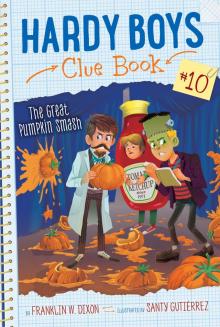 The Great Pumpkin Smash
The Great Pumpkin Smash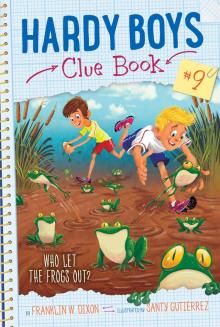 Who Let the Frogs Out?
Who Let the Frogs Out?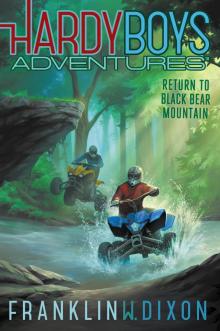 Return to Black Bear Mountain
Return to Black Bear Mountain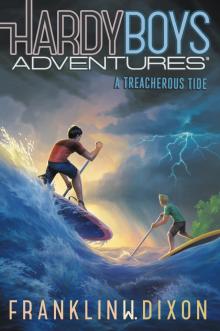 A Treacherous Tide
A Treacherous Tide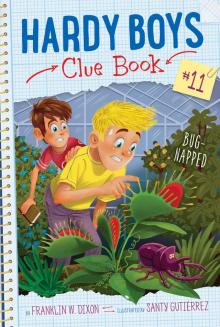 Bug-Napped
Bug-Napped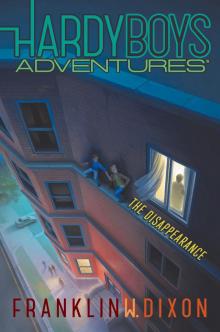 The Disappearance
The Disappearance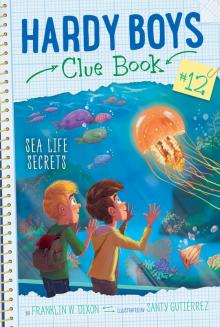 Sea Life Secrets
Sea Life Secrets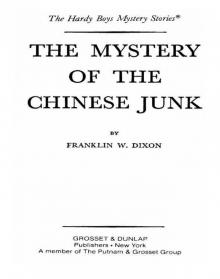 The Mystery of the Chinese Junk
The Mystery of the Chinese Junk A Skateboard Cat-astrophe
A Skateboard Cat-astrophe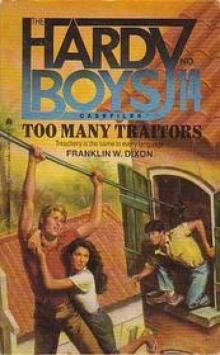 Too Many Traitors
Too Many Traitors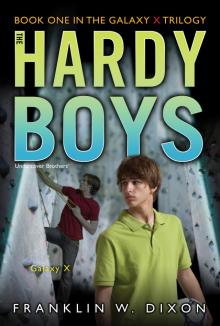 Galaxy X
Galaxy X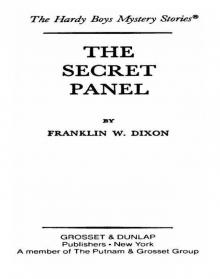 The Secret Panel
The Secret Panel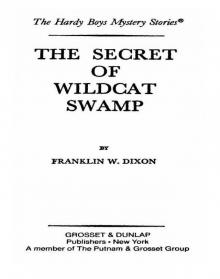 The Secret of Wildcat Swamp
The Secret of Wildcat Swamp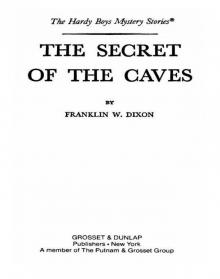 The Secret of the Caves
The Secret of the Caves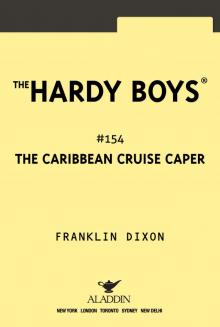 The Caribbean Cruise Caper
The Caribbean Cruise Caper Without a Trace
Without a Trace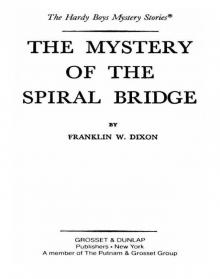 The Mystery of the Spiral Bridge
The Mystery of the Spiral Bridge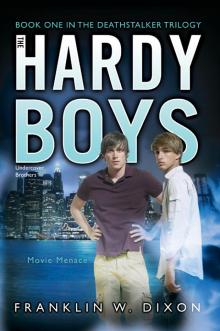 Movie Menace
Movie Menace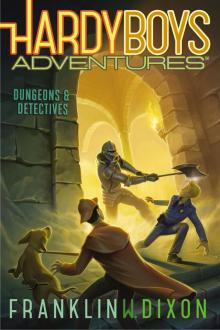 Dungeons & Detectives
Dungeons & Detectives Water-Ski Wipeout
Water-Ski Wipeout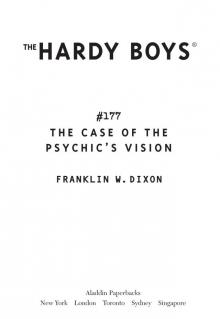 The Case of the Psychic's Vision
The Case of the Psychic's Vision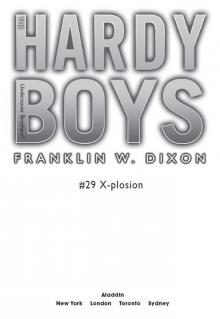 X-plosion
X-plosion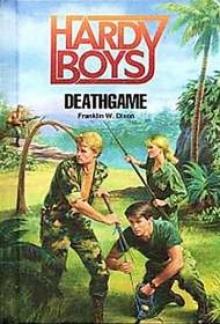 Deathgame
Deathgame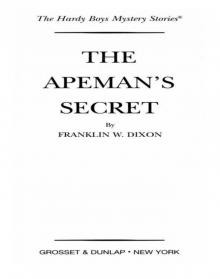 The Apeman's Secret
The Apeman's Secret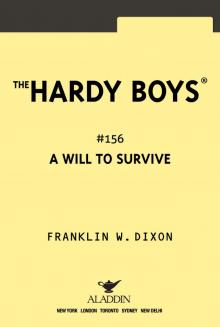 A Will to Survive
A Will to Survive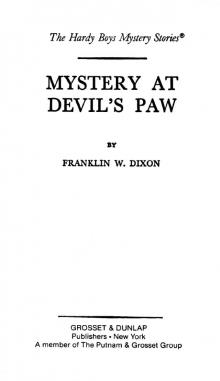 Mystery at Devil's Paw
Mystery at Devil's Paw Blood Money
Blood Money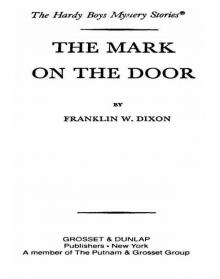 The Mark on the Door
The Mark on the Door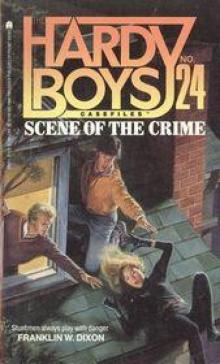 Scene of the Crime
Scene of the Crime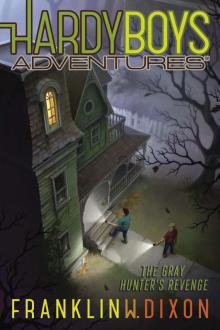 The Gray Hunter's Revenge
The Gray Hunter's Revenge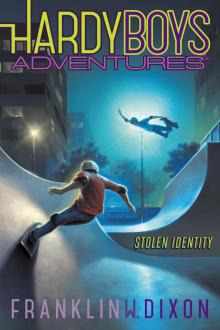 Stolen Identity
Stolen Identity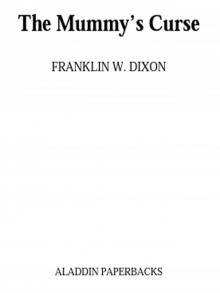 The Mummy's Curse
The Mummy's Curse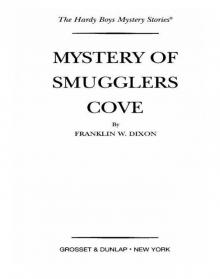 Mystery of Smugglers Cove
Mystery of Smugglers Cove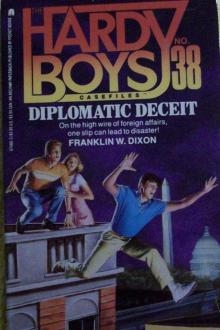 Diplomatic Deceit
Diplomatic Deceit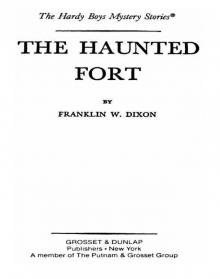 The Haunted Fort
The Haunted Fort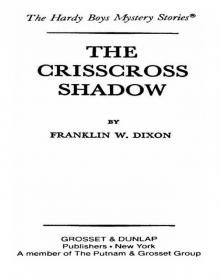 The Crisscross Shadow
The Crisscross Shadow Secret of the Red Arrow
Secret of the Red Arrow Trial and Terror
Trial and Terror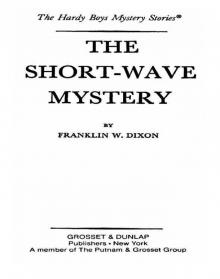 The Short-Wave Mystery
The Short-Wave Mystery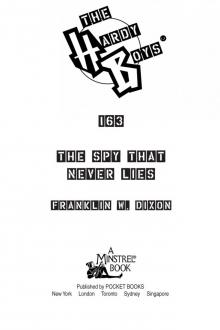 The Spy That Never Lies
The Spy That Never Lies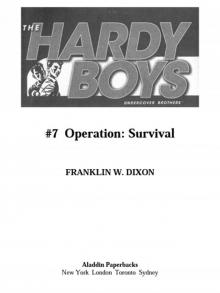 Operation: Survival
Operation: Survival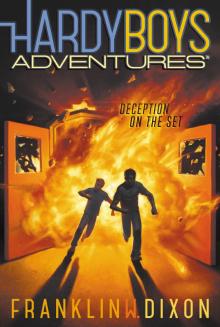 Deception on the Set
Deception on the Set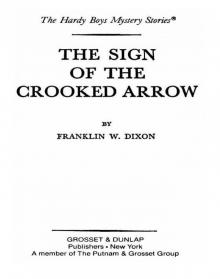 The Sign of the Crooked Arrow
The Sign of the Crooked Arrow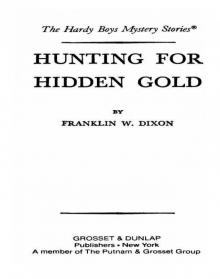 Hunting for Hidden Gold
Hunting for Hidden Gold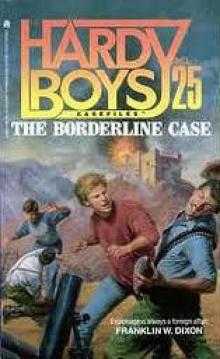 Disaster for Hire
Disaster for Hire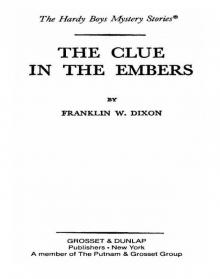 The Clue in the Embers
The Clue in the Embers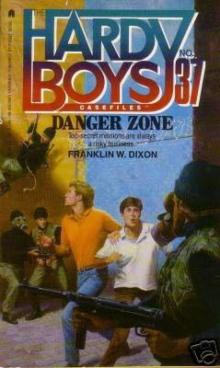 Danger Zone
Danger Zone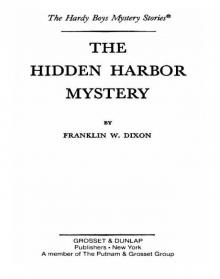 The Hidden Harbor Mystery
The Hidden Harbor Mystery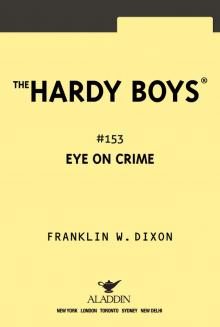 Eye on Crime
Eye on Crime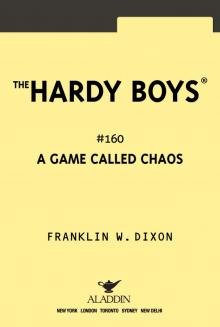 A Game Called Chaos
A Game Called Chaos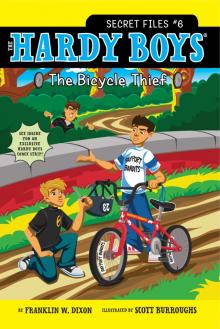 The Bicycle Thief
The Bicycle Thief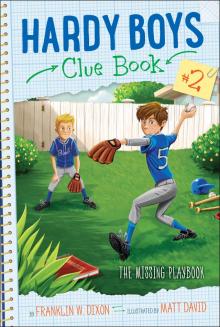 The Missing Playbook
The Missing Playbook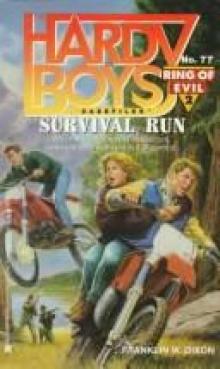 Survival Run
Survival Run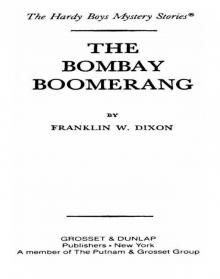 The Bombay Boomerang
The Bombay Boomerang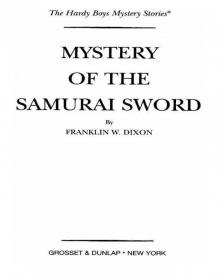 Mystery of the Samurai Sword
Mystery of the Samurai Sword Burned
Burned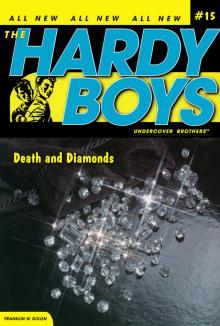 Death and Diamonds
Death and Diamonds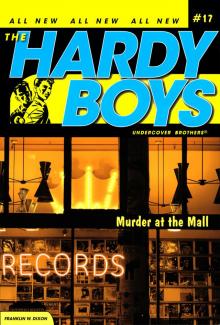 Murder at the Mall
Murder at the Mall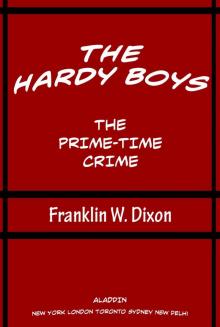 The Prime-Time Crime
The Prime-Time Crime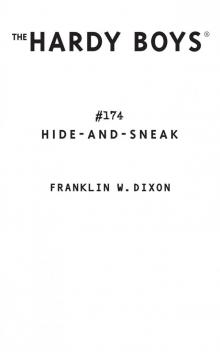 Hide-and-Sneak
Hide-and-Sneak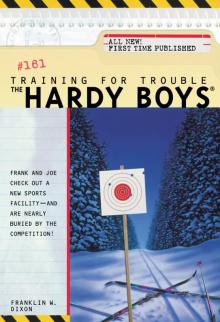 Training for Trouble
Training for Trouble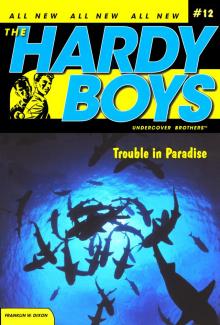 Trouble in Paradise
Trouble in Paradise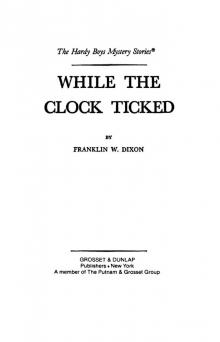 While the Clock Ticked
While the Clock Ticked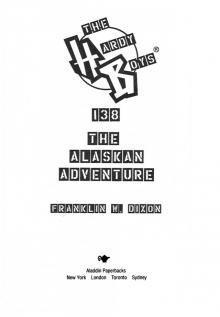 The Alaskan Adventure
The Alaskan Adventure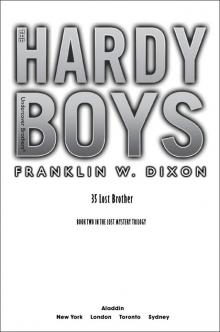 The Lost Brother
The Lost Brother Tunnel of Secrets
Tunnel of Secrets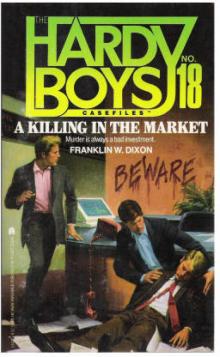 A Killing in the Market
A Killing in the Market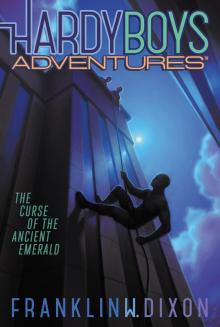 The Curse of the Ancient Emerald
The Curse of the Ancient Emerald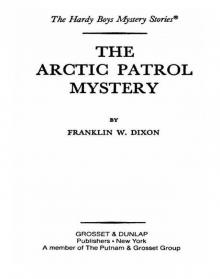 The Arctic Patrol Mystery
The Arctic Patrol Mystery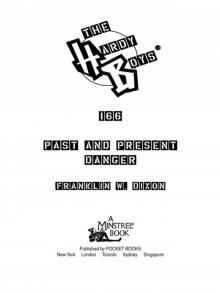 Past and Present Danger
Past and Present Danger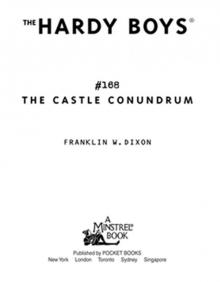 The Castle Conundrum (Hardy Boys)
The Castle Conundrum (Hardy Boys)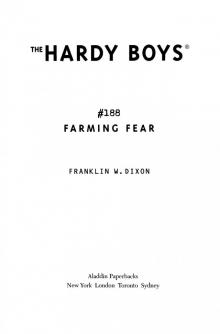 Farming Fear
Farming Fear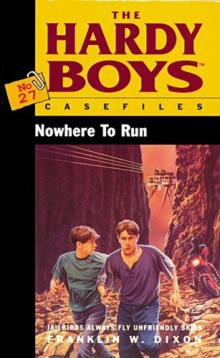 Nowhere to Run
Nowhere to Run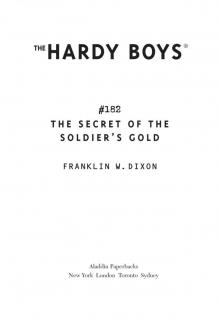 The Secret of the Soldier's Gold
The Secret of the Soldier's Gold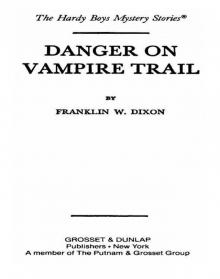 Danger on Vampire Trail
Danger on Vampire Trail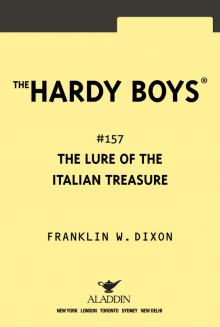 The Lure of the Italian Treasure
The Lure of the Italian Treasure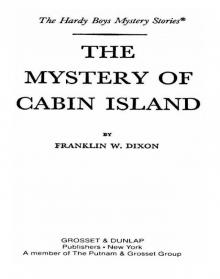 The Mystery of Cabin Island
The Mystery of Cabin Island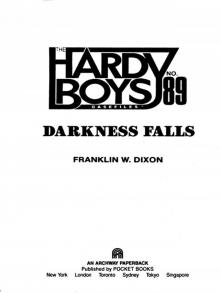 Darkness Falls
Darkness Falls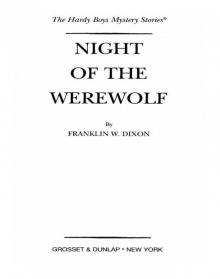 Night of the Werewolf
Night of the Werewolf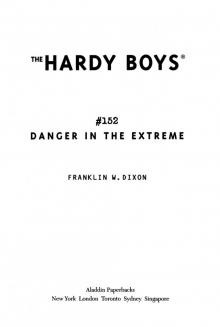 Danger in the Extreme
Danger in the Extreme The Lazarus Plot
The Lazarus Plot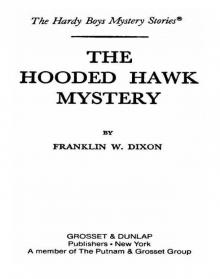 The Hooded Hawk Mystery
The Hooded Hawk Mystery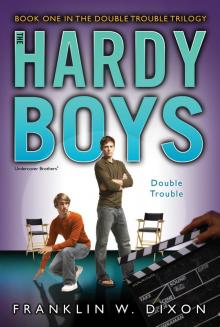 Double Trouble
Double Trouble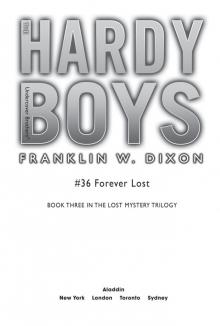 Forever Lost
Forever Lost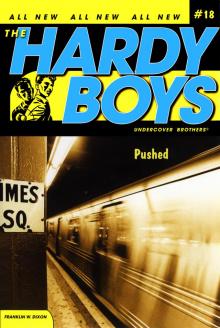 Pushed
Pushed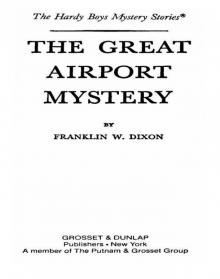 The Great Airport Mystery
The Great Airport Mystery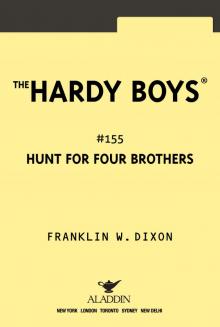 The Hunt for Four Brothers
The Hunt for Four Brothers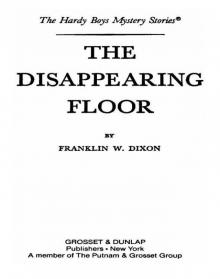 The Disappearing Floor
The Disappearing Floor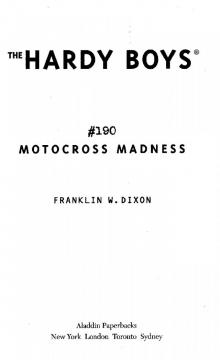 Motocross Madness
Motocross Madness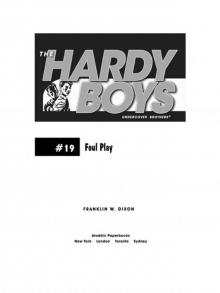 Foul Play
Foul Play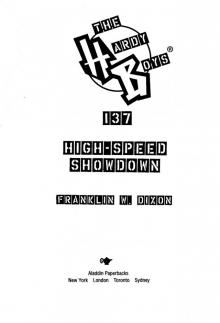 High-Speed Showdown
High-Speed Showdown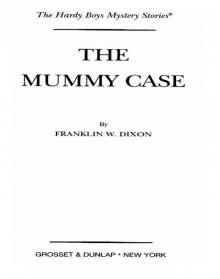 The Mummy Case
The Mummy Case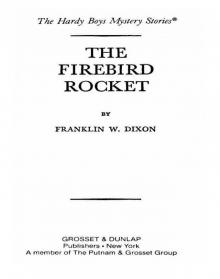 The Firebird Rocket
The Firebird Rocket Trouble in Warp Space
Trouble in Warp Space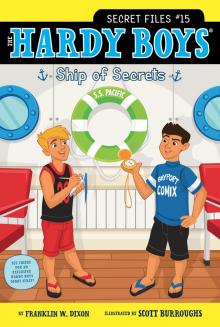 Ship of Secrets
Ship of Secrets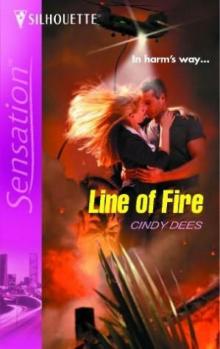 Line of Fire
Line of Fire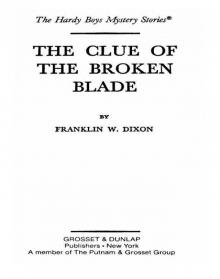 The Clue of the Broken Blade
The Clue of the Broken Blade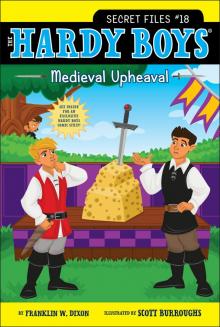 Medieval Upheaval
Medieval Upheaval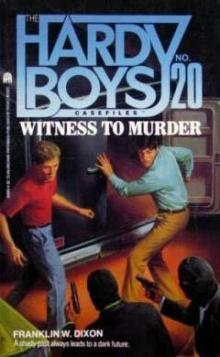 Witness to Murder
Witness to Murder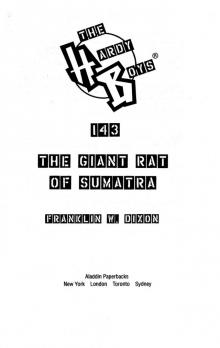 The Giant Rat of Sumatra
The Giant Rat of Sumatra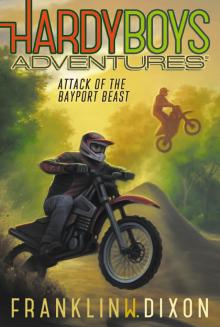 Attack of the Bayport Beast
Attack of the Bayport Beast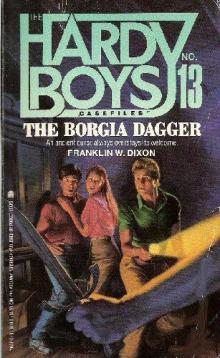 The Borgia Dagger
The Borgia Dagger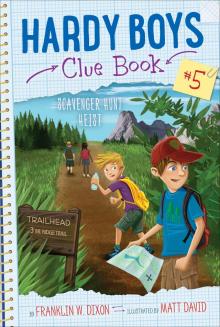 Scavenger Hunt Heist
Scavenger Hunt Heist No Way Out
No Way Out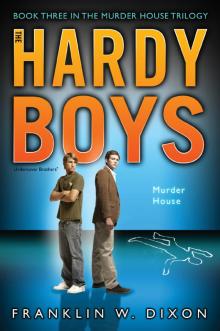 Murder House
Murder House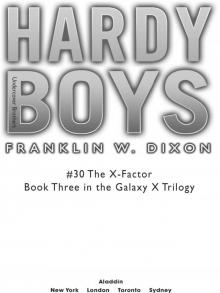 The X-Factor
The X-Factor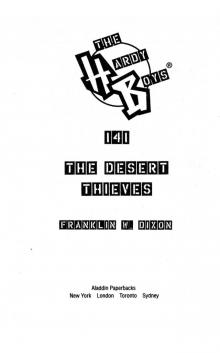 The Desert Thieves
The Desert Thieves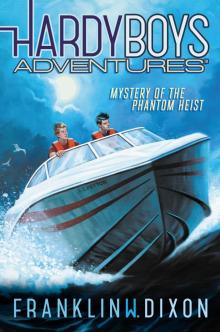 Mystery of the Phantom Heist
Mystery of the Phantom Heist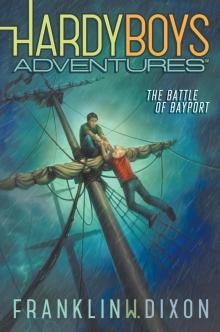 The Battle of Bayport
The Battle of Bayport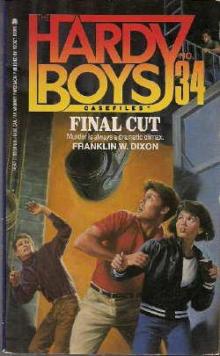 Final Cut
Final Cut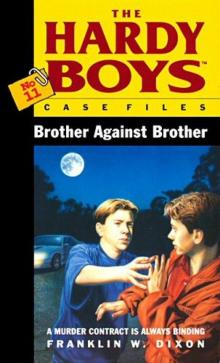 Brother Against Brother
Brother Against Brother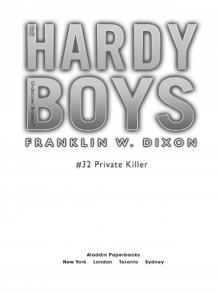 Private Killer
Private Killer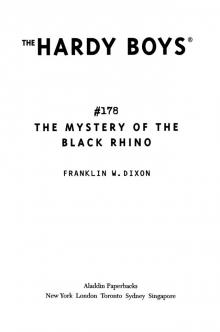 The Mystery of the Black Rhino
The Mystery of the Black Rhino Feeding Frenzy
Feeding Frenzy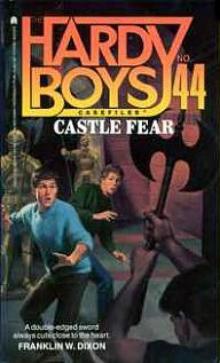 Castle Fear
Castle Fear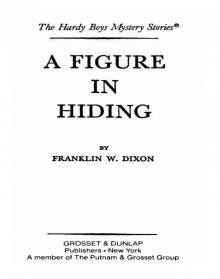 A Figure in Hiding
A Figure in Hiding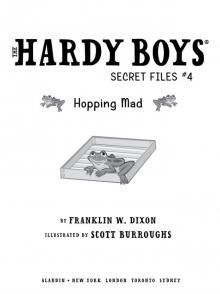 Hopping Mad
Hopping Mad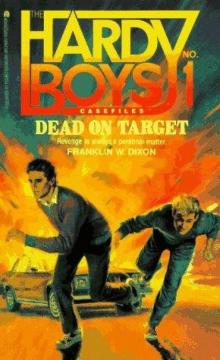 Dead on Target
Dead on Target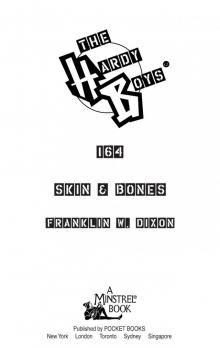 Skin and Bones
Skin and Bones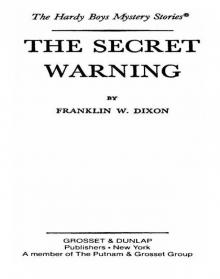 The Secret Warning
The Secret Warning Flesh and Blood
Flesh and Blood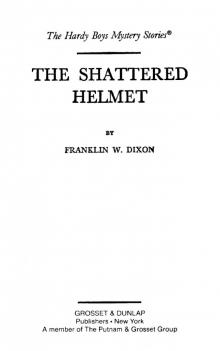 The Shattered Helmet
The Shattered Helmet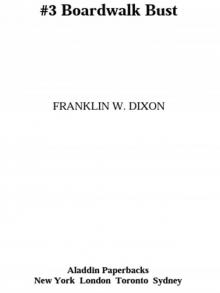 Boardwalk Bust
Boardwalk Bust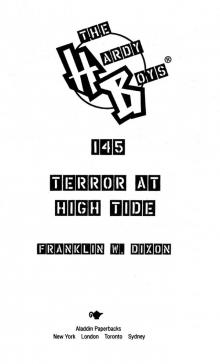 Terror at High Tide
Terror at High Tide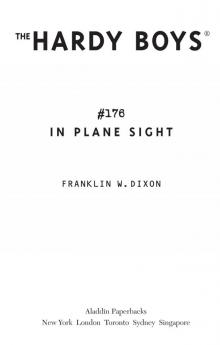 In Plane Sight
In Plane Sight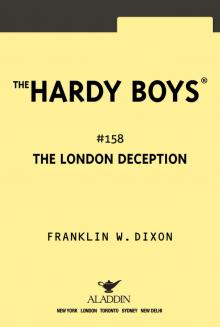 The London Deception
The London Deception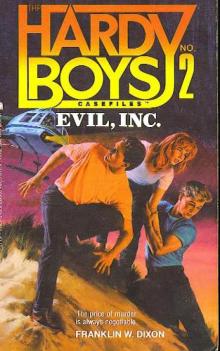 Evil, Inc.
Evil, Inc.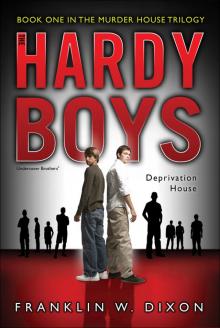 Deprivation House
Deprivation House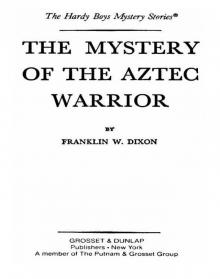 The Mystery of the Aztec Warrior
The Mystery of the Aztec Warrior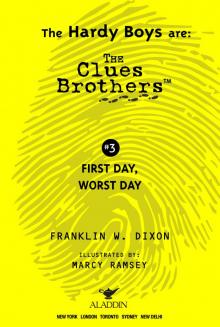 First Day, Worst Day
First Day, Worst Day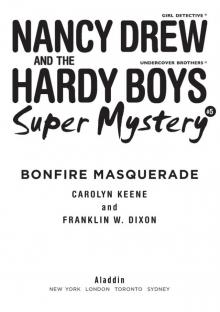 Bonfire Masquerade
Bonfire Masquerade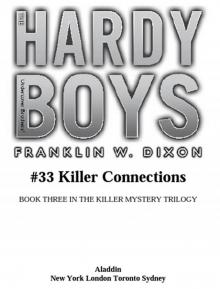 Killer Connections
Killer Connections Strategic Moves
Strategic Moves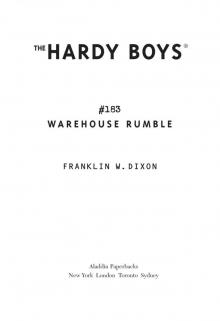 Warehouse Rumble
Warehouse Rumble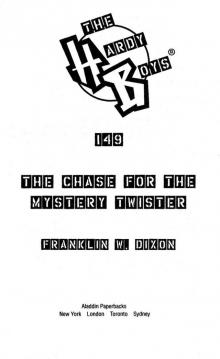 The Chase for the Mystery Twister
The Chase for the Mystery Twister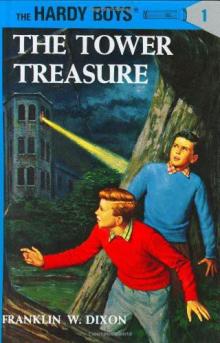 The Tower Treasure thb-1
The Tower Treasure thb-1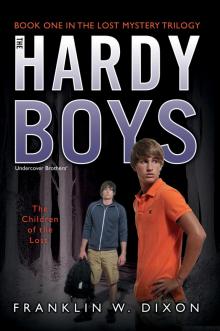 The Children of the Lost
The Children of the Lost The Last Laugh
The Last Laugh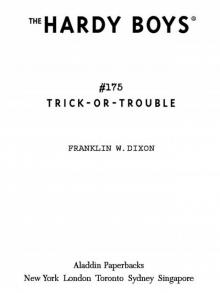 Trick-or-Trouble
Trick-or-Trouble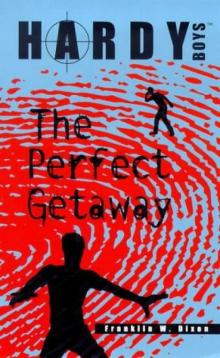 Perfect Getaway
Perfect Getaway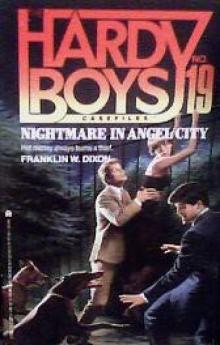 Nightmare in Angel City
Nightmare in Angel City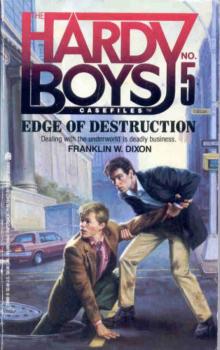 Edge of Destruction
Edge of Destruction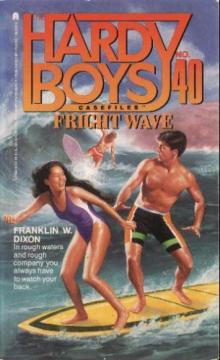 Fright Wave
Fright Wave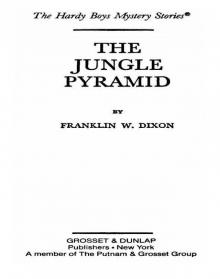 The Jungle Pyramid
The Jungle Pyramid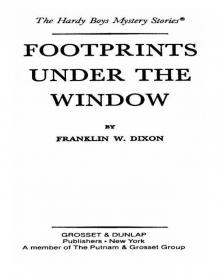 Footprints Under the Window
Footprints Under the Window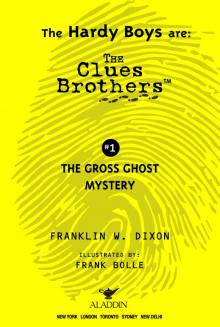 The Gross Ghost Mystery
The Gross Ghost Mystery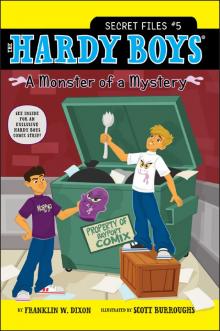 A Monster of a Mystery
A Monster of a Mystery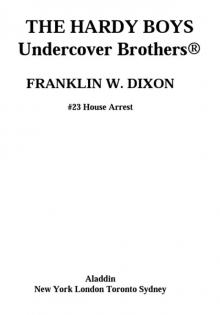 House Arrest
House Arrest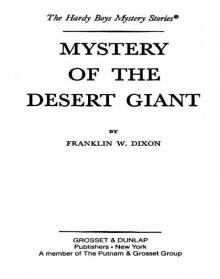 Mystery of the Desert Giant
Mystery of the Desert Giant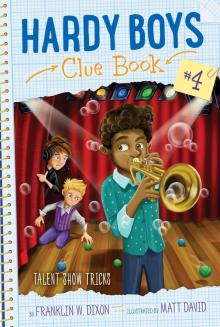 Talent Show Tricks
Talent Show Tricks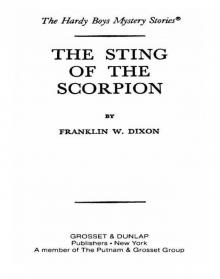 The Sting of the Scorpion
The Sting of the Scorpion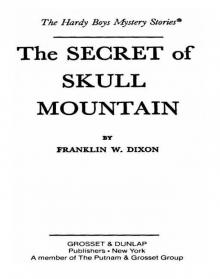 The Secret of Skull Mountain
The Secret of Skull Mountain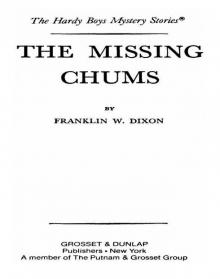 The Missing Chums
The Missing Chums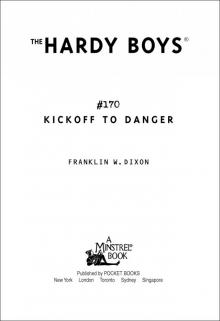 Kickoff to Danger
Kickoff to Danger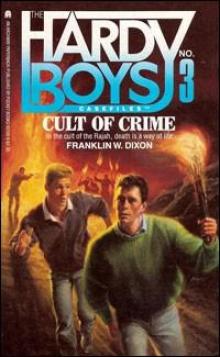 Cult of Crime
Cult of Crime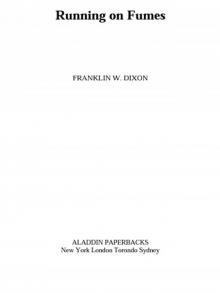 Running on Fumes
Running on Fumes Martial Law
Martial Law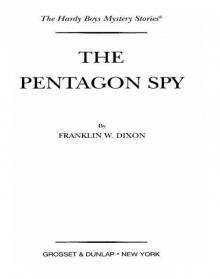 The Pentagon Spy
The Pentagon Spy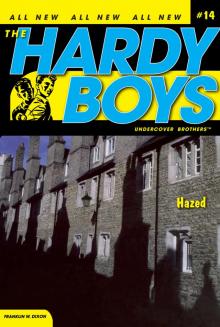 Hazed
Hazed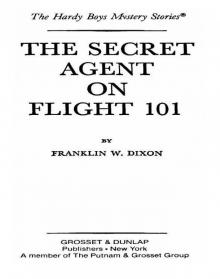 The Secret Agent on Flight 101
The Secret Agent on Flight 101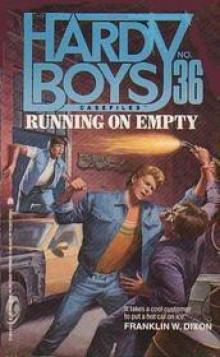 Running on Empty
Running on Empty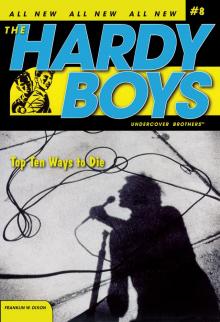 Top Ten Ways to Die
Top Ten Ways to Die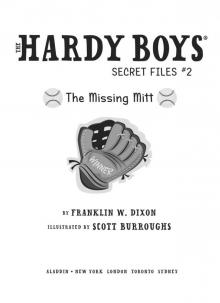 The Missing Mitt
The Missing Mitt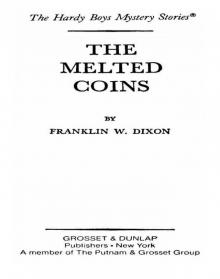 The Melted Coins
The Melted Coins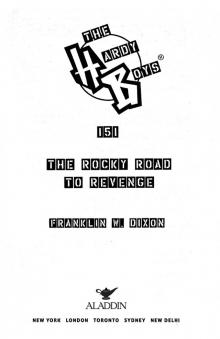 The Rocky Road to Revenge
The Rocky Road to Revenge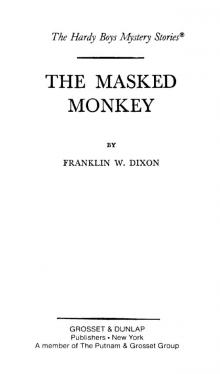 The Masked Monkey
The Masked Monkey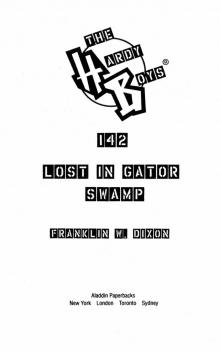 Lost in Gator Swamp
Lost in Gator Swamp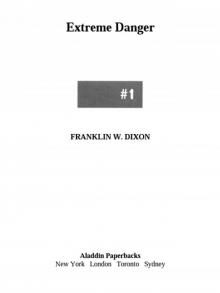 Extreme Danger
Extreme Danger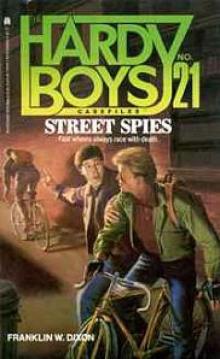 Street Spies
Street Spies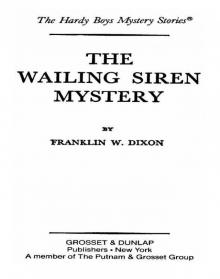 The Wailing Siren Mystery
The Wailing Siren Mystery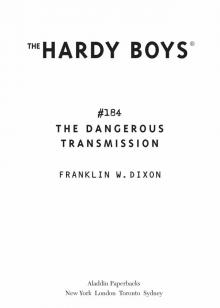 The Dangerous Transmission
The Dangerous Transmission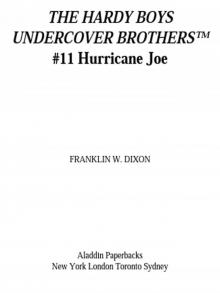 Hurricane Joe
Hurricane Joe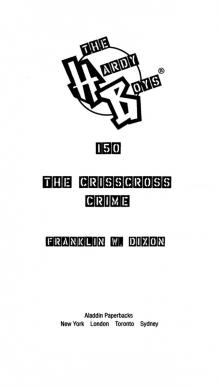 The Crisscross Crime
The Crisscross Crime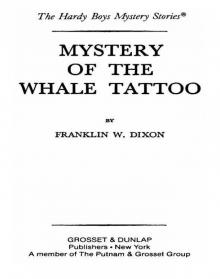 Mystery of the Whale Tattoo
Mystery of the Whale Tattoo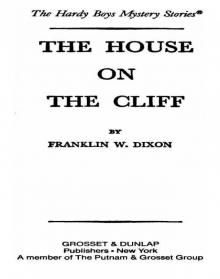 The House on the Cliff
The House on the Cliff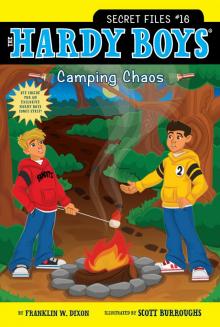 Camping Chaos
Camping Chaos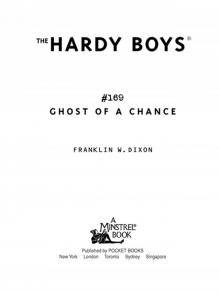 Ghost of a Chance
Ghost of a Chance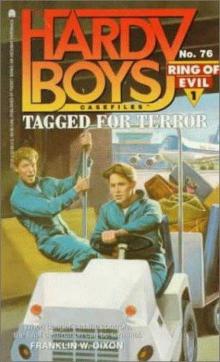 Tagged for Terror
Tagged for Terror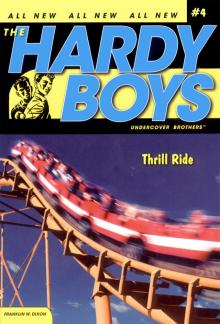 Thrill Ride
Thrill Ride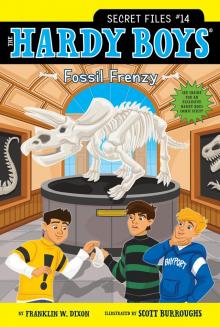 Fossil Frenzy
Fossil Frenzy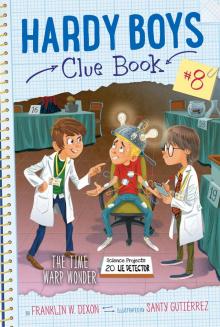 The Time Warp Wonder
The Time Warp Wonder Ghost Stories
Ghost Stories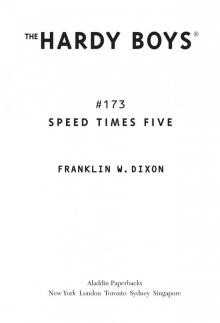 Speed Times Five
Speed Times Five What Happened at Midnight
What Happened at Midnight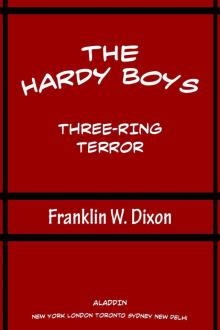 Three-Ring Terror
Three-Ring Terror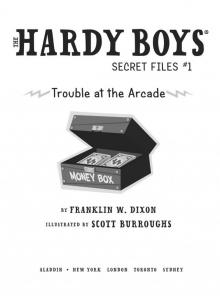 Trouble at the Arcade
Trouble at the Arcade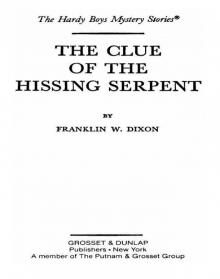 The Clue of the Hissing Serpent
The Clue of the Hissing Serpent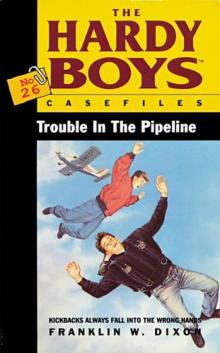 Trouble in the Pipeline
Trouble in the Pipeline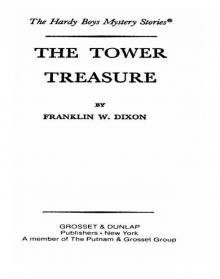 The Tower Treasure
The Tower Treasure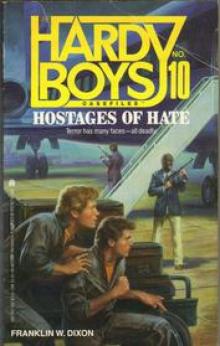 Hostages of Hate
Hostages of Hate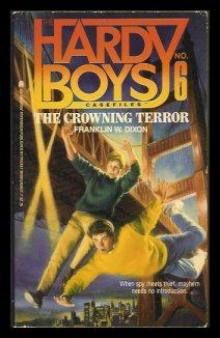 The Crowning Terror
The Crowning Terror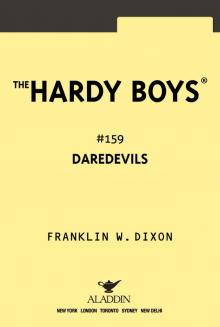 Daredevils
Daredevils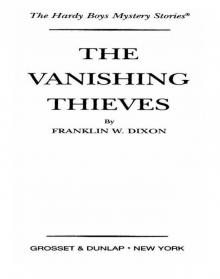 The Vanishing Thieves
The Vanishing Thieves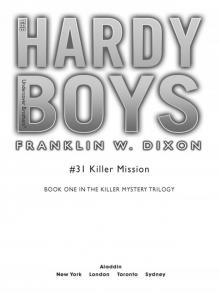 Killer Mission
Killer Mission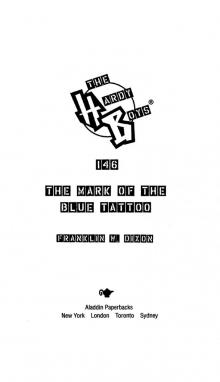 The Mark of the Blue Tattoo
The Mark of the Blue Tattoo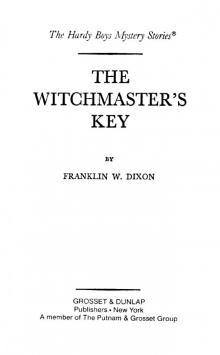 The Witchmaster's Key
The Witchmaster's Key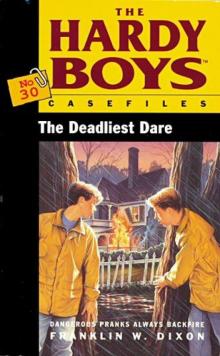 The Deadliest Dare
The Deadliest Dare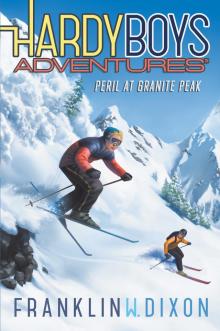 Peril at Granite Peak
Peril at Granite Peak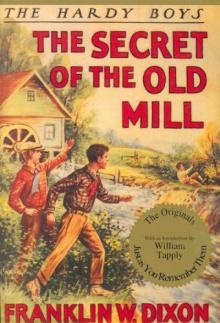 The Secret Of The Old Mill thb-3
The Secret Of The Old Mill thb-3 Rocky Road
Rocky Road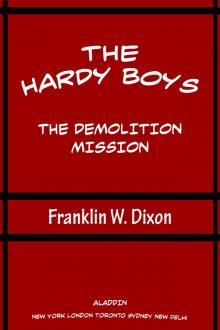 The Demolition Mission
The Demolition Mission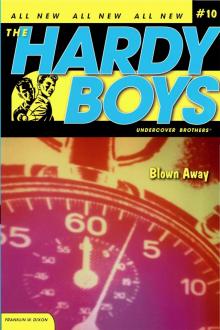 Blown Away
Blown Away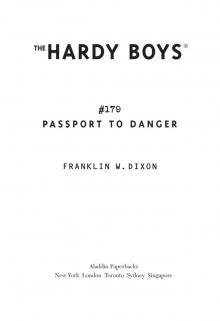 Passport to Danger
Passport to Danger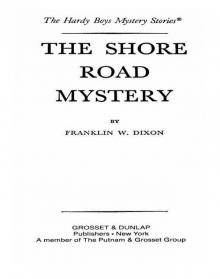 The Shore Road Mystery
The Shore Road Mystery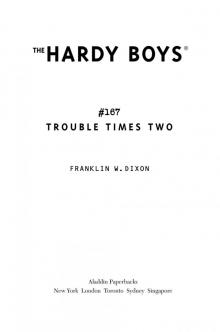 Trouble Times Two
Trouble Times Two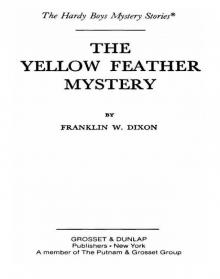 The Yellow Feather Mystery
The Yellow Feather Mystery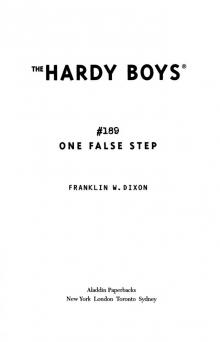 One False Step
One False Step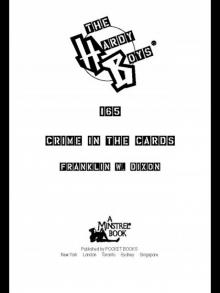 Crime in the Cards
Crime in the Cards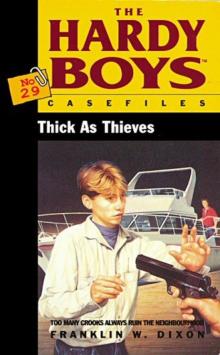 Thick as Thieves
Thick as Thieves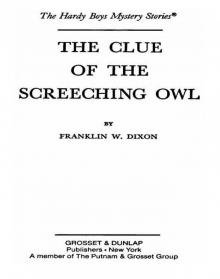 The Clue of the Screeching Owl
The Clue of the Screeching Owl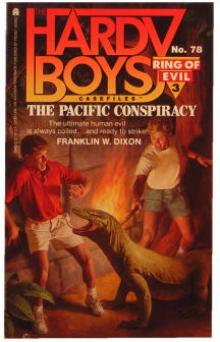 The Pacific Conspiracy
The Pacific Conspiracy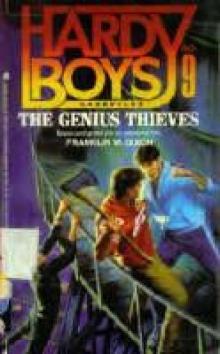 The Genius Thieves
The Genius Thieves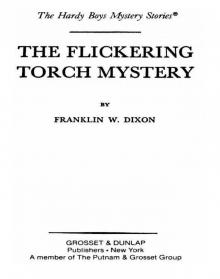 The Flickering Torch Mystery
The Flickering Torch Mystery Into Thin Air
Into Thin Air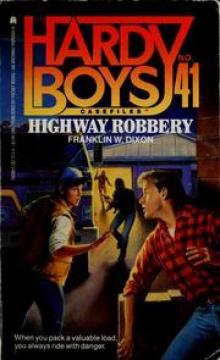 Highway Robbery
Highway Robbery Deadfall
Deadfall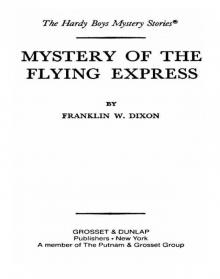 Mystery of the Flying Express
Mystery of the Flying Express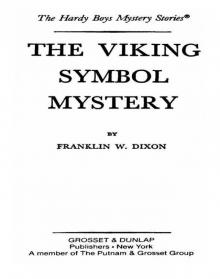 The Viking Symbol Mystery
The Viking Symbol Mystery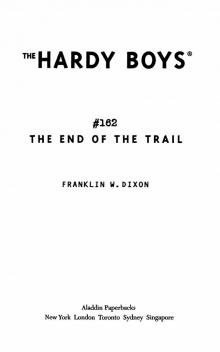 The End of the Trail
The End of the Trail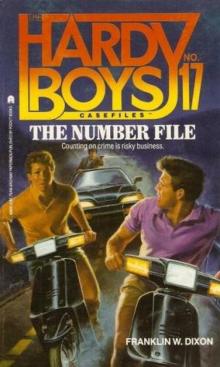 The Number File
The Number File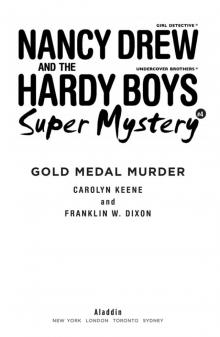 Gold Medal Murder
Gold Medal Murder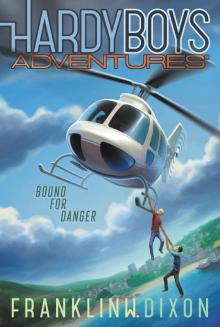 Bound for Danger
Bound for Danger Collision Course
Collision Course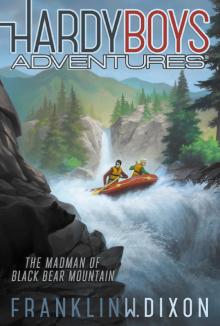 The Madman of Black Bear Mountain
The Madman of Black Bear Mountain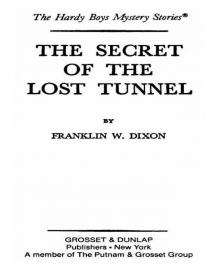 The Secret of the Lost Tunnel
The Secret of the Lost Tunnel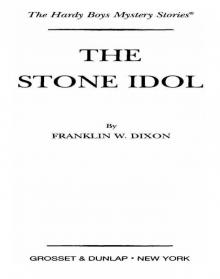 The Stone Idol
The Stone Idol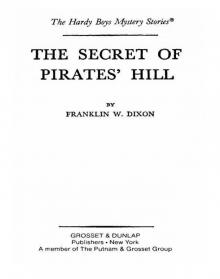 The Secret of Pirates' Hill
The Secret of Pirates' Hill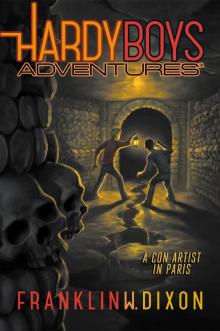 A Con Artist in Paris
A Con Artist in Paris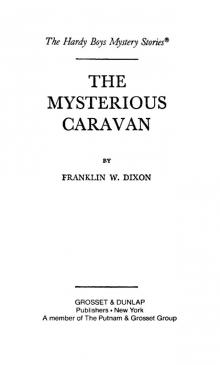 The Mysterious Caravan
The Mysterious Caravan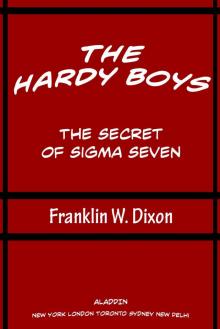 The Secret of Sigma Seven
The Secret of Sigma Seven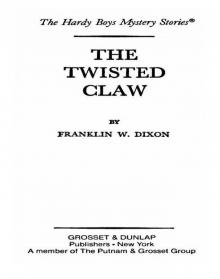 The Twisted Claw
The Twisted Claw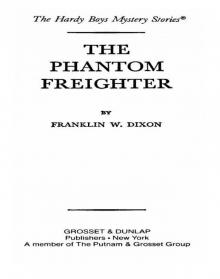 The Phantom Freighter
The Phantom Freighter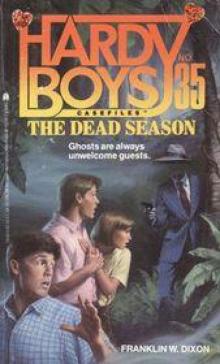 The Dead Season
The Dead Season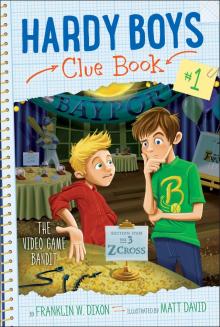 The Video Game Bandit
The Video Game Bandit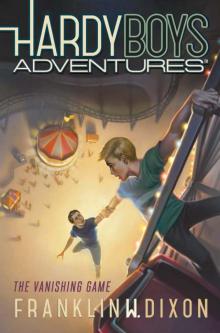 The Vanishing Game
The Vanishing Game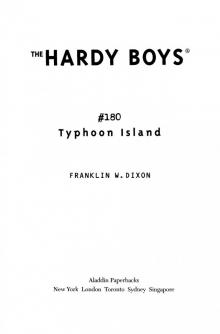 Typhoon Island
Typhoon Island